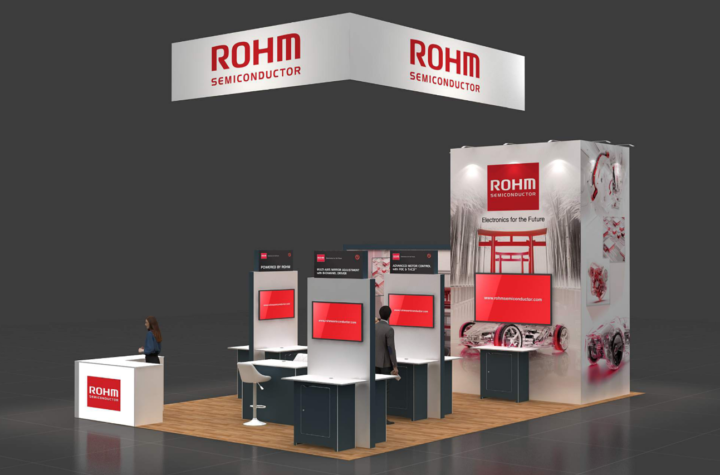
LG Chem, Ltd. was recently announced as the lithium-ion polymer battery cell supplier for GM’s Chevrolet Volt. The Volt, scheduled to be launched in late 2010, will be the first mass-produced extended-range electric vehicle. LG Chem will be the production source for the battery cells, and Compact Power Inc., North American Subsidiary of LG Chem, will build battery packs for Volt development vehicles until GM’s battery facility is operational.
LG Chem plans to manufacture the cells, which have already been successfully tested with the Chevrolet Volt’s prototype, at its Ochang TechnoPark, two hours south of Seoul, Korea. The facility is one of the largest and most technologically advanced of its kind anywhere in the world. Upon production of the cells, they will be shipped directly to a GM battery assembly facility.
Chevrolet Volt, the first mass-produced electric vehicle, can run up to 40 miles (64 kilometers) after a three-hour charge on a 240-volt outlet or eight to nine hours when plugged into a 120-volt socket. When the battery runs out, an on-board gas engine will self-engage to step into generate electricity to power the vehicles electric drive motors for several hundred additional miles.
For the past two years the industry has been watching closely to see who would be chosen to supply batteries for this electric-powered vehicle, as the contract requires the creation of powerful, highly-reliable and safe batteries utilizing advanced technology.
“LG Chem’s proven experience with lithium-ion cells – especially cell design and manufacturing capability – make them the ideal battery cell supplier for the Volt,” said Rick Wagoner, Chairman and CEO of General Motors. “We believe the technical strengths of LG Chem, combined with our own engineering and manufacturing expertise, positions GM as a key player in the development of electric vehicles today, and well into the future.”
LG Chem’s lithium-ion battery cells provide this extended-range electric vehicle with superior performance and safety due to:
1) Safer chemistry (without compromises in performance or battery lifespan) – specifically, a manganese-based cathode chemistry with additives to improve its lifespan under high-temperature conditions.
2) Proprietary Safety Reinforced Separator (SRSTM) coated with ceramics – the semi-permeable insulating membranes separating the electrodes in the cells. They are mechanically and thermally far superior to commonly used separators in lithium-ion cells thanks to the ceramic coatings. This unique technology further enhances the significant abuse tolerance capability already provided by the manganese base used in LG Chem cells. LG Chem is the only lithium-ion battery manufacturer to provide this dual protection against thermal runaways that can result from abuse conditions such as internal shorts, extreme overcharge.
3) A thermally efficient and safer laminated package – designed to be more forgiving than a metal cylinder under abuse conditions and not lead to explosions. The thermal efficiency of this package helps reduce the cost and complexity of the battery cooling system.
With this breakthrough in battery technology, LG Chem will open a new era in the industry. Compared to nickel metal hydride (NiMH) batteries, the company’s green lithium-ion batteries are more durable and space-efficient. Furthermore, they deliver the same power with less weight, less volume, and greater efficiency over nickel metal hydride batteries found in today’s hybrids. Lithium-ion polymer batteries are also more resistant to changes in temperature, which improves cycle life.
“This is a game-changing opportunity going from nickel metal hydride to lithium-ion polymer, the so-called second generation of EV/HEV batteries. And this encouraging news with GM only confirms that LG Chem’s technology is a step ahead of the competition,” said LG Chem CEO, Peter Bahn-suk Kim. “We plan to spend about $1 billion on lithium-ion polymer batteries by 2013, confident that LG Chem will continue to grow into a top global supplier for EVs/HEVs.”
Of the 72 million cars worldwide, EVs/HEVs on the road make up only 700,000, or 0.9%. However, due to concerns regarding fossil fuels and an increasing demand of eco-responsibility, this number is expected to rise quickly. The EV/HEV battery market is also likely to expand up to $3.2 billion in revenue by 2012, up from 700 million in 2008.
LG Chem’s lithium-ion polymer batteries have already made a big impact on the global auto industry after contracts with Hyundai for its Avante model and Kia for its Forte model.
LG Chem, Ltd. is Korea’s largest chemical and rechargeable battery maker in terms of both size and performance. The company’s chemical business is vertically integrated and manufactures a wide range of products, from petrochemical goods to high-value added plastics. It also extends its chemical expertise into high-tech areas such as rechargeable batteries and the display materials field. For more information, please visit our website at www.lgchem.com
Compact Power, Inc. (CPI) is a wholly-owned North American subsidiary of LG Chem. The company was founded in 2000 in the United States and is headquartered in Troy, Michigan, the automotive capital of the world. CPI’s mission is to become the supplier of choice for lithium-ion battery technology. To learn more about CPI, please visit our website at www.compactpower.com





More Stories
Baja SAE Carolina:
ROHM to Showcase Advanced Power Electronics at APEC 2025
ROHM Launches 650V GaN HEMT in a Compact, High-heat Dissipation TO-Leadless Package